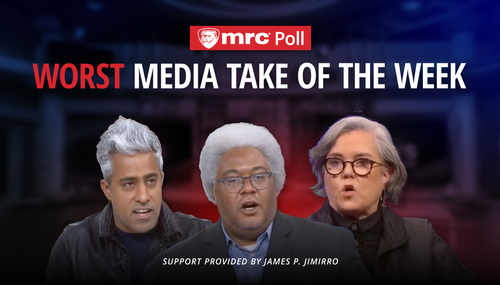After the 2016 presidential election, Univision senior anchor Jorge Ramos sought respite in Japan, and wrote a column depicting the Land of the Rising Sun as a cultural exemplar. In 2018, however, he found horror- which yielded another preachy column.
From his 2017 Fusion (now Splinter) column titled, “Japan, as an antidote”:
After all the shouting and name calling that occurred during the presidential campaign in the United States, I needed an antidote. So I decided to spend 10 days in one of the world’s most polite countries: Japan.
Tokyo, the capital, has 13 million inhabitants (or 38 million if you include the metro area), but there are moments when, if you close your eyes, you can picture an almost empty city. Among the Japanese, silence is a form of respect. In their perfectly synchronized subway, for instance, the cars, while usually crowded, are free from music and loud talk.
I spent my vacation in Tokyo without hearing cars honking. A Japanese guide’s explanation for this amazed me: “We always consider what other people may be feeling.” I can’t imagine taxi drivers and motorists in New York, Mexico City or Buenos Aires with that kind of attitude.
Perhaps it’s the food.
To be clear, this isn’t the first time that Ramos waves Japan as a cultural exemplar. Ramos is quite fond of bringing up Japan’s murder rate when discussing gun bans, for example. Of course, Ramos does this without mentioning that Japan’s press is widely regarded as less free than that of the United States, and that there is no protection from random police searches. The column goes on to enumerate all the cultural niceties that appealed to Ramos. But during a more recent trip to Japan, the cultural comparisons took a darker turn. From his recent Splinter column, “Animals are people”:
I saw them die right before my eyes: four prawns, twisting over a hot iron griddle. One was jumping, trying to escape its imminent death. The noise these creatures made as they were being charred sounded like an almost indiscernible little cry of anguish. They were suffering. I could feel their deep black eyes looking at me, as though they were begging for help. A coward, I did nothing.
During a recent trip to Japan, a teppanyaki chef in the entertaining Roppongi area of Tokyo had asked us if we wanted to see how he cooked live prawns, and we naively agreed. We watched and became accomplices to something that felt like torture and murder. Then, worst of all, we ate the prawns, feeling disgust and guilt.
Go figure, perhaps it wasn't the food. It seems that Ramos didn’t factor the Japanese fondness for extra-extra-fresh seafood into his calculus when ramming Japan down our throats as a cultural exemplar against the apparent savageries of the country he has called home for the past 35 years. And now these conflicts seem to be leading Ramos down the path of vegetarianism:
Like many humans, I make an arbitrary distinction between dogs, cats, elephants and dolphins, just to mention a few, and all the other animals. Just as I would never have considered Lola or Sunset to be food, I would never eat whale or orangutan meat. But the more I think about the prawns I saw dying in Japan, the harder it is for me to separate those animals that are for eating from those that are not.
Meanwhile, I’m getting more accustomed to the idea of questioning why animals and humans are considered so different. Animals are people.
I wonder what they think of us.
Given that most of the pork consumed in the United States is also farmed (as is the beef and chicken cited in the column), one wonders whether Ramos will practice what he preaches and give up his beloved pozole.





